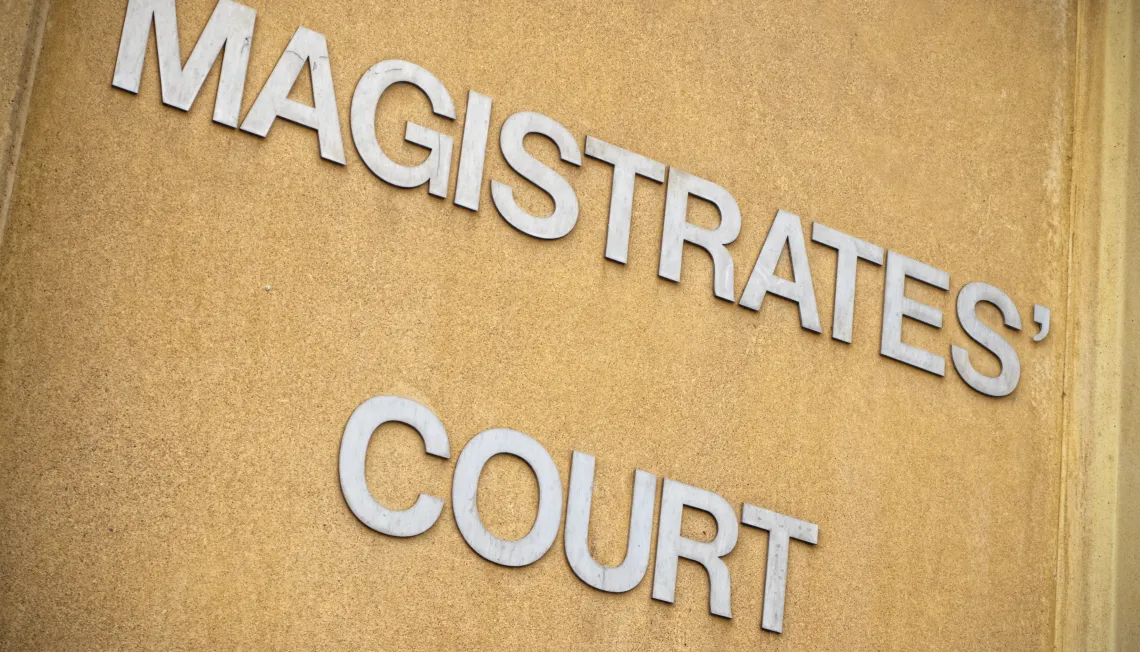Problem solving in Northern Ireland
The Northern Ireland Department of Justice (DoJ) has implemented a programme of problem solving initiatives as part of an overall approach taken by the DoJ which aims to reduce reoffending rates by tackling the underlying problems that lead to re-offending. One of these initiatives is the Substance Misuse Court (SMC) which has been running at Belfast Magistrates Court since April 2018, with Judge Fiona Bagnall presiding. The SMC takes an alternative approach to help offenders when substance abuse is an underlying problem.
Belfast Substance Misuse Court (SMC)
The SMC offers eligible offenders the opportunity to engage in an intensive treatment programme before sentencing, to help tackle their addiction and change their behaviour. Eligibility screening is carried out by staff from the Probation Board for Northern Ireland (PBNI) and Addiction Northern Ireland.
Dr Geraldine O’Hare of the PBNI notes that around three-quarters of people under probation supervision in Northern Ireland have an alcohol or drug-related problem that contributes directly to their offending behaviour. The SMC is a problem-solving approach to a very problematic issue in the Northern Ireland criminal justice system.
The process of the SMC
Eligible offenders are referred on for a full assessment which is completed by the SMC team. If suitable, the offender’s sentence is deferred until completion of the treatment programme.
To be eligible for the SMC, the offender must:
- Be aged 18 or over;
- Have committed a crime relating to substance misuse (the type of offence eligible is usually determined on an individual basis);
- Have no history of sex offences;
- Not have been in possession of an offensive weapon when arrested;
- Not be a large-scale drug dealer;
- Have pled guilty or been found guilty in court;
- Be willing to cooperate with supervision, not offend and stay away from the misused substance and participate in the programme;
- Consent to the sharing of personal information between participating agencies/bodies; and
- Not have a health complication or mental illness that impedes participation in the programme.
Upon being admitted to the SMC, probation officers, psychologists, and Addiction NI experts work together to formulate a comprehensive and tailored treatment and supervision plan. The plan will be a combination of different services and supervision methods such as:
- Custom therapeutic intervention for substance misuse;
- Opportunities to address issues underlying offending behaviour;
- Access to social support;
- Random drug/alcohol testing; and
- Regular court reviews of performance and progress.
While completing the programme, the offender is subject to court bail conditions and must attend review hearings with the Judge to monitor progress. If the Judge feels that progress is not being made, she can terminate the programme and sentence the offender.
Upon successful completion of the programme, the judge will preside over a final review where she passes sentence. The sentence takes into account the offender’s engagement with the programme and any other evidence before the court. A discharge summary is also made available to address the provision of social support which will be available to prevent relapse.
Evaluation
In March 2020 an initial evaluation of phase 1 was published, with positive, initial results reported. By the end of phase 1, 28 out of 50 clients had completed or were nearing completion of the programme. 26 of these clients showed a significant reduction in problem scores for both drug and alcohol misuse over the duration of the programme, a significant reduction in risk of re-offending, and significant increases in self-efficacy, locus of control and well-being.
In the evaluation, the programme was commended for its flexible approach and ability to adapt to ensure sufficient referral numbers and client engagement. The screening process was adjusted to include more complex clients and a focus on outreach resulted in stronger relationships with clients and prevented clients from ‘falling through the gaps’.
Outcomes and challenges
Staff at the SMC have noted a number of key learnings from their pilot scheme that they believe support the development of an effective scheme. The need for specialist drug training was highlighted to ensure that all staff, not just recovery workers from Addiction NI, would have a greater understanding of the clients’ treatment needs and the process involved.
One of the lessons learned from the pilot was the need for greater clarity in relation to the purpose of the programme; whether the focus should be on the achievement of abstinence or the reduction of harm or risk to society. Another challenge was the lack of mental health provision for clients with serious mental health issues. The report recommended the implementation of a separate mental health court, which is currently being explored.
Staff recommend having a test period, which would allow offenders to engage in the programme to assess their motivation, before being officially accepted. This ensures that only those who are committed, motivated and willing to engage will be accepted and reduces the number of early drop outs on the programme. They advised that schemes should ensure that they prepare early on for an evaluation and ensure they have robust monitoring procedures in place.
Finally, staff emphasised the value of having a celebration/recognition for the clients who successfully complete the programme. The SMC organises a small ceremony where the Judge presents each participant with a certificate of completion. Clients can invite their families to this celebration, which encourages a sense of achievement and pride.
Overall, the initial outcomes were positive and the pilot is considered to be a very good foundation to build upon. Some of the feedback received from evaluation participants has been implemented in Phase 2 of the pilot which is running from July 2019 until December 2020, extending the programme from 12 to 18 months to allow defendants with complex needs to receive the comprehensive treatment they need.
This case-study was compiled by Michael Farinu in 2019 and updated in 2020
